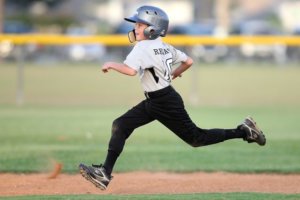Sports on our minds…and for our minds
Written by Sandie Barrie Blackley, Speech-Language Pathologist
Published on August 13, 2012

Did you know there is a connection between athletics and the ability to learn?
In her article for the Yale Center for Dyslexia & Creativity, “Sports: Strengthening Their Self Confidence and School Skills,” Nancy Hall makes the point that “physical activities like individual or team sports, important for any child, are especially beneficial for those with dyslexia.”
Hall goes on to offer helpful stories illustrating her point — examples in which youth who struggle with dyslexia offset some aspect of their difficulty with success in sports. Issues of self-esteem, frustration, motivation, relationships and even organization can be improved through athletics and such improvements can give students the confidence they need to continue making progress on the academic side.
When a child struggles to read, write or spell, it’s easy for life to fall out of balance — for the child and the family to turn a laser focus on “fixing” the problem at the expense of play, fun, and recreation.
Getting a professional evaluation and finding the right treatment is essential, but, as Nancy Hall demonstrates, sports can be a vital supplement to language therapy for children with dyslexia.
Lexercise’s online, research-based services help struggling readers, writers, and spellers — no matter where they live! Take a look at our Online Dyslexia Testing and Treatment page or contact us at Info@Lexercise.com or 1-919-747-4557.
Improve Your Child’s Reading
Learn more about Lexercise today.
Schedule a FREE
15-minute consultation


